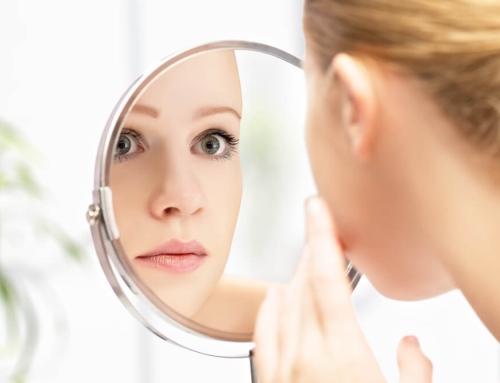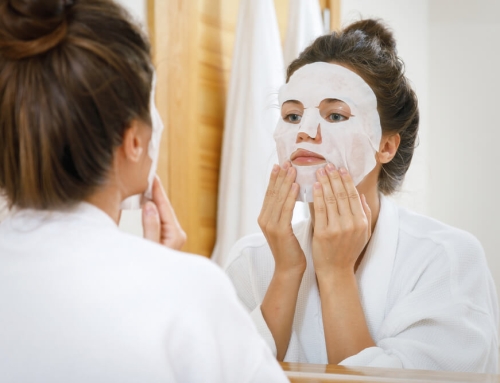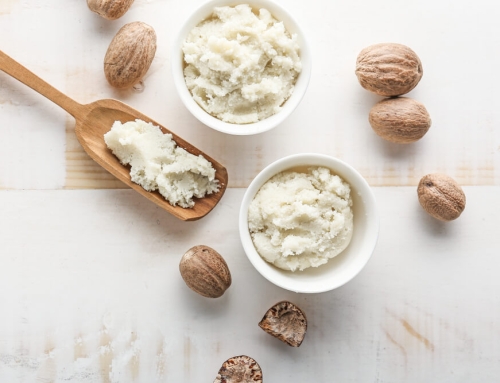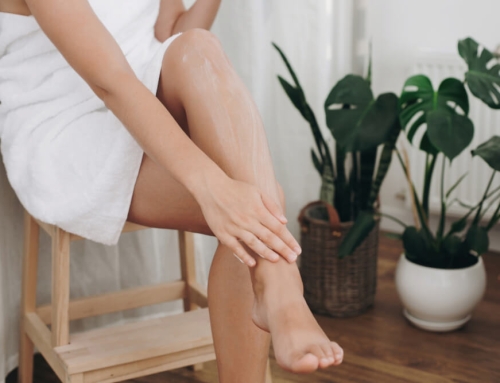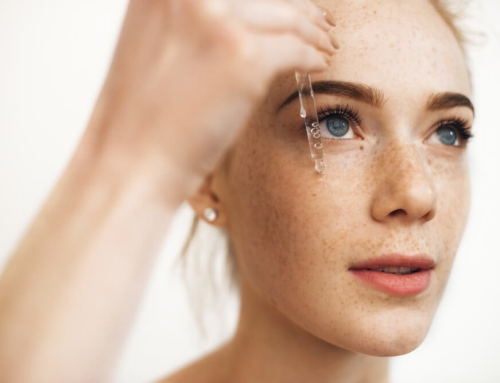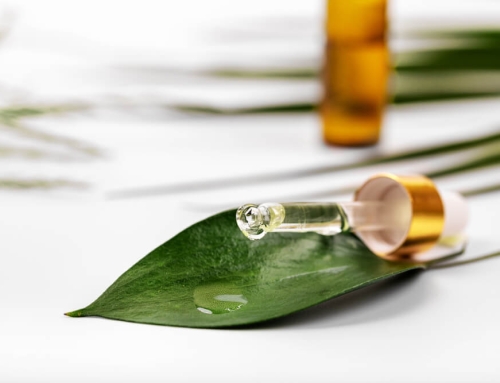Covid-19 has truly shaken up all aspects of life. From the extra stress and worry to the social restrictions, both body and mind will take some time to adapt to the new normal.
However, have you ever stopped to wonder how your skin has been handling it all?
All of that time spent staying indoors, frequently washing your hands, and feeling anxious about everything going on around you isn’t doing your skin any favors, which is why many have been seeing a variety of different skin issues arising lately.
You’ve got enough to worry about at the moment – you don’t need to be dealing with additional skin concerns on top of it all, so here’s a guide to help you learn how to take care of your skin during a pandemic.
Dealing with Maskne
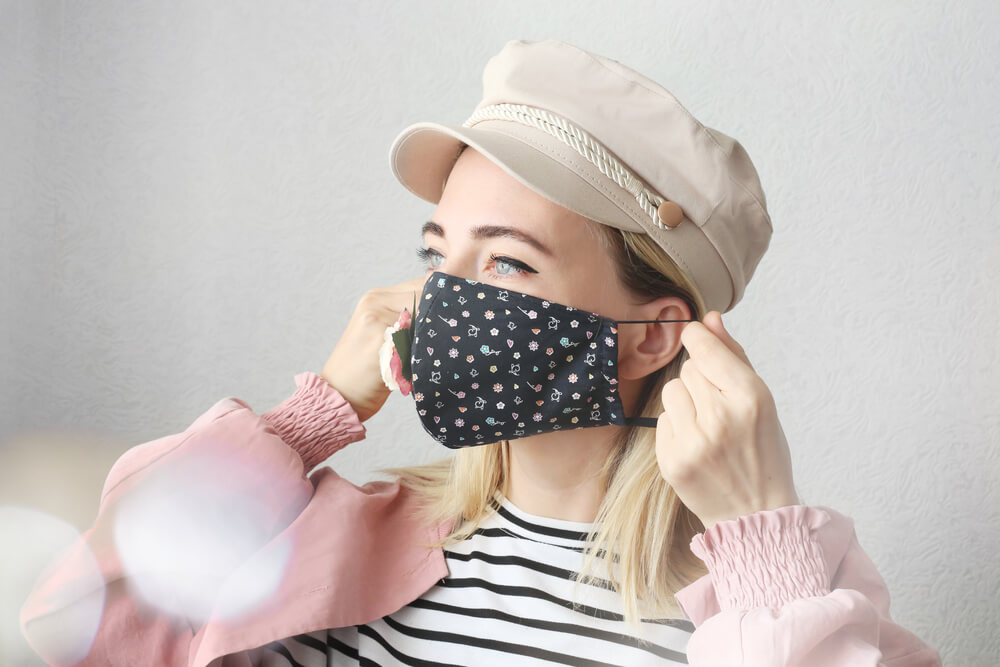
One of the most common skin issues that people are experiencing during the Covid-19 pandemic is maskne, meaning acne caused by wearing a face mask. The extra stress that people are dealing with at this time doesn’t help either, leading to inflammation in the skin that triggers even more breakouts.
People who have never had acne before are finding themselves dealing with acne, but all this means is that you will need to make a few extra changes to your routine.
Be honest – how often do you wash your face mask?
You should ideally be washing it each day, or after each use if your skin is particularly bad, even if this means keeping multiple masks on you at all times.
Keeping your face clean is key too, and you need to make sure that you’re using the right skin care products as well. Look for purifying and detoxifying ingredients, but ensure that your skin is kept well-hydrated too – you don’t want it to overcompensate for dehydration by producing even more oil.
Preventing Dry Skin on the Hands
How many times a day do you wash your hands now?
Chances are, the number is far higher than it was before the pandemic, and this is really going to start taking a toll on your skin.
How?
Washing your hands actually dries the skin out, especially if you aren’t moisturizing your hands immediately afterwards. The potent antibacterial products being used so frequently these days are also packed with alcohol, which has an extremely drying effect too.
Of course, you can’t stop sanitizing or washing your hands, but giving the skin on your hands a little extra care and attention is something that’s definitely under your control…
As mentioned, moisturizing your hands immediately after washing them will prevent the skin from drying out – in fact, if you moisturize while your hands are still damp, this will actually increase your skin’s hydration levels, making your hands noticeably softer and smoother.
Look for a hand cream that contains plenty of rich plant butters and plant oils, as well as vitamins and antioxidants, such as the 24K Classic Hand & Body Cream.
Since your hands are going through so much extra wear and tear at the moment, a hand mask will help to provide some additional nourishment. The 24K Multi-Vitamin Hand Mask is not only great for keeping the hands feeling soft and supple, but it will also leave the skin in this area looking much smoother.
The Effects of Stress
Have you been feeling more stressed out than usual lately?
You’re not alone, and while this extra stress may be completely understandable, the effects that this is having on your skin could end up being long-lasting unless dealt with soon.
Whenever you feel stressed, your body releases a hormone called cortisol, which plays havoc on the skin in a number of ways:
- It destroys collagen and elastin fibers, leading to wrinkles and sagging skin
- It increases oil production and inflammation, leading to acne
- It causes sleep deprivation, which can lead to puffy eyes, wrinkles, and uneven pigmentation
- It damages the outer layer of the skin, leading to dryness
- It weakens the immune system, leading to rashes
While you may be able to topically treat some of these symptoms, keeping your stress levels down really is one of the best things that you could do for your skin during this pandemic.
How do you keep stress levels low?
It’s definitely easier said than done at the beginning, simply because there are so many different possible solutions out there. Everyone has their own go-to technique when it comes to reducing stress, so you won’t know what works for you until you’ve tried a few.
Some of the most popular stress-busting methods that you could try include:
- Doing something physically active whenever you feel stressed
- Trying some deep breathing exercises or meditation during times of stress
- Getting your thoughts down on paper
- Listening to some music
- Spending time with an animal
- Focusing on a hobby
Develop a Skincare Routine That Relaxes and Soothes You
Many people have found themselves turning to self care during the Coronavirus pandemic, which is hardly surprising. There is so much research out there that backs up how animals, including humans, use grooming routines and rituals as a way to stay calm and lower anxiety.
People often forget about their routines at times like these, but a solid skin care routine could be just what you need to help you feel a little more grounded again.
What should your skin care routine consist of?
This all depends…not only on your skin type, but also on how long you want to spend on your skin each day.
If you put together a long and complicated 12-step skin care routine, is this something that you will be able to commit to following each and every day? For some, the answer would be yes, whereas others prefer routines that are short but sweet, such as this basic, three-step routine:
Step 1: Cleanser
Cleansing should be the first step of every skin care routine – without clearing away all of the dirt, oil, and dead skin cells from the surface of your skin, anything else you apply won’t be able to properly penetrate in.
Step 2: Serums
Serums are a key part of any skin care routine, no matter your skin type. They only take a few seconds to apply, but those who want to spend more time on this stage can opt to use multiple serums instead, layering them onto the skin in a beneficial way.
Choose serums that target the specific skin concerns that you are dealing with at the moment. For example, pick a brightening serum if you’ve noticed that the stress of this pandemic has been causing dullness and uneven pigmentation, or go for an antioxidant-rich serum if wrinkles are your problem.
Step 3: Moisturizer
A moisturizer should always be the final step in a skin care routine – it will help to seal all of the previous products that you have applied into your skin, ensuring that your skin receives maximum benefits from them. It’s not usually wise to skip out on the moisturizing stage, although those that have overly-oily skin may find it beneficial to simply use a deeply-hydrating serum instead.
Of course, there are several other steps that you could add in, from toners to eye creams to facial oils. Exfoliation is something else that you should be doing on a regular basis, and face masks are great for taking some time out to de-stress. However, a skin care routine isn’t going to do you any good unless you actually follow it, so make sure that the one you create is genuinely a routine that soothes and relaxes you.
Counter All of the Extra Screen Time
Whether you’ve been working from home or spending the lockdown catching up on the latest Netflix movies, chances are that you have been spending so much more time in front of your screen than you usually do.
You may not have realized that there’s a connection between this and your skin, but the two are linked in such a significant way…
Just about every screen out there emits blue light, a specific wavelength of light that contributes to:
- Hyperpigmentation
- Fine lines and wrinkles
- Skin laxity
- Redness
Blue light also interferes with the body’s sleep/wake cycle and, as you probably already know, beauty sleep is key when it comes to keeping the skin healthy.
What can you do about this?
Unplugging for a while and giving yourself some off-screen time is the best way to go, but most will never be able to totally get away from their screens, meaning some extra help is necessary.
Antioxidants are the best ingredients for preventing and countering blue light damage, and these can be found in everything from cleansers and toners to serums and creams.
Which is best?
Serums are one of the best ways to deliver antioxidants into the skin – their lightweight consistency enables them to carry high concentrations of potent ingredients, which they can then give to the cells that lie deeper within the skin.
If you have been looking for a new antioxidant-rich serum, give the 24K Nano Ultra Silk Serum a try. Its antioxidant line-up is impressive, with a number of botanicals that together provide an incredibly wide spectrum of compounds.
A Lack of Vitamin D
Whether due to personal choice or forced restrictions, people have found themselves spending so much more time indoors lately.
In some ways, this has been great for your skin – after all, the sun’s UV rays are one of the main causes of skin aging, and the extra time indoors has given your skin a small break from these. The lack of outdoor pollutants will be benefiting your skin too.
However, if you have noticed that your skin has been looking a little dull, and you know that you haven’t been getting out very much, then this could mean that you have a vitamin D deficiency. Although relatively uncommon, those who haven’t been able to spend 15-20 minutes in the sun each day may find themselves dealing with this.
Vitamin D plays an important role in skin health. From repair and protection to growth and metabolism, it’s there at just about every process.
While you may not be able to increase the amount of time you spend outdoors, and may not want to now that winter is approaching, vitamin D supplements can help your skin to get back to normal. Speak to your doctor for recommendations on the best one for you.
Nourishment from Within
Your skin is a reflection of your internal health, and while the pandemic may be contributing to a variety of different skin concerns, keeping your body heathy by eating a well-balanced diet can help to counter a number of issues.
You probably already know what you should and shouldn’t be eating – sugars and processed foods are a big no-no, while fresh fruits and vegetables, along with nuts and seeds, should all feature on your plate.
However, one aspect of their diet that many neglect is seasonal eating. The foods that nature produces each season contain all of the vitamins, minerals, and other nutrients that your body needs to get it through that time of year.
For example, now that it’s fall, you’ll notice that just about every fall food out there is packed with nutrients that boost the immune system and help repair damage, which is everything you need for the winter.
The food that you eat has a huge impact on your skin, so make the most of that extra time at home by dedicating yourself to cooking healthier and better-balanced meals.
Covid-19 has been a frightening time for everyone, but this doesn’t mean that your skin should be suffering. Just like you, your skin is adjusting to a new way of life, so try to help it with this by adapting the care you provide to all of the changes that this pandemic has brought on.


